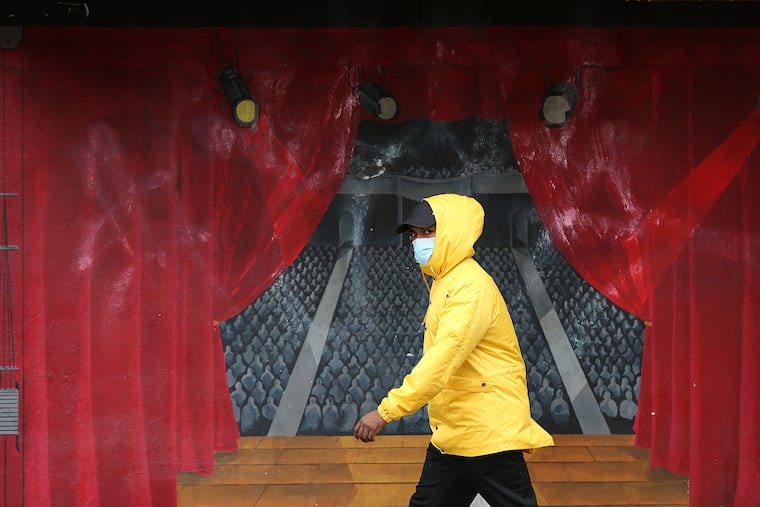What’s up with my bad mask breath?
It’s not the mask. Your breath was probably already a tad putrid when you put that mask on, said Dr. Mark S. Wolff, a dentist and dean of the University of Pennsylvania’s School of Dental Medicine.

We know you’ve noticed.
'Cause we’ve noticed.
You’re pushing your cart through the grocery store, breathing into your mask, and all of a sudden it hits you: Your mask smells funky. Oh wait, that’s your breath.
Why does wearing this mask seem to make my breath smell so bad?
The truth is, it’s not the mask. Your breath was probably already a tad putrid when you put that mask on, explained Dr. Mark S. Wolff, a dentist and dean of the University of Pennsylvania’s School of Dental Medicine, who has spent many years researching all the reasons our breath can sometimes be stinky. The problem, Wolff said, is that we don’t know it because we’ve just recently began exhaling into a covering that hovers over our noses all the time. “It’s as if we cupped our hands in front of our face to test our breath,” Wolff said. “But it’s there all the time.”
“The mask doesn’t make us have bad breath,” he said. “It makes us more conscious that we have bad breath.”
Why am I so aware of this when I am wearing a mask?
Because our mouths are swimming in bacteria, Wolff explained. Most of that bacteria is left over from the food we eat, and it hides between our teeth, under our gums, on the back of our tongue and in our sinuses, Wolff said. There is also natural bacteria that lives in our mouth all of the time. So when we breathe, the moist — and sometimes fetid — air hits our masks. And as this air evaporates, it leaves behind a stench that when it hits the mask shoots right back up into our nostrils. Yuck.
» READ MORE: How to clean your face mask to help prevent getting and spreading the coronavirus
What should I do?
Most of the time, halitosis can be cured by focusing on basic oral hygiene. Take the time to floss in the morning and at night, Wolff says. Brush your teeth three times a day. Wolff suggests that we also brush our tongues and the sides of our cheeks. And don’t forget a bacteria-killing mouthwash like Listerine.
If you are, however, noticing your breath is particularly smelly, you may have periodontitis, also known as gum disease. Gum disease is largely preventable and it happens when the bacteria left over from the food we eat lodges deep into the pockets surrounding our gums. This bacteria eats away at our gums, causing our teeth to loosen and eventually fall out. Gum disease releases a sulfurous chemical called methyl mercaptan that smells like rotten eggs, Wolff says. So when that noxious gas crawls back up into the nostrils, it can be most unpleasant.
» READ MORE: How to see a dentist during the coronavirus pandemic
Popping in a breath mint before you don your mask can help, but Wolff says, it only masks the problem. (Pun very much intended.) If you suspect your bad breath is due to gum disease, please visit your dentist as soon as you safely can.
In the meantime, keep those masks clean, and lay off the garlic and coffee before you go out. Your nose will thank you.